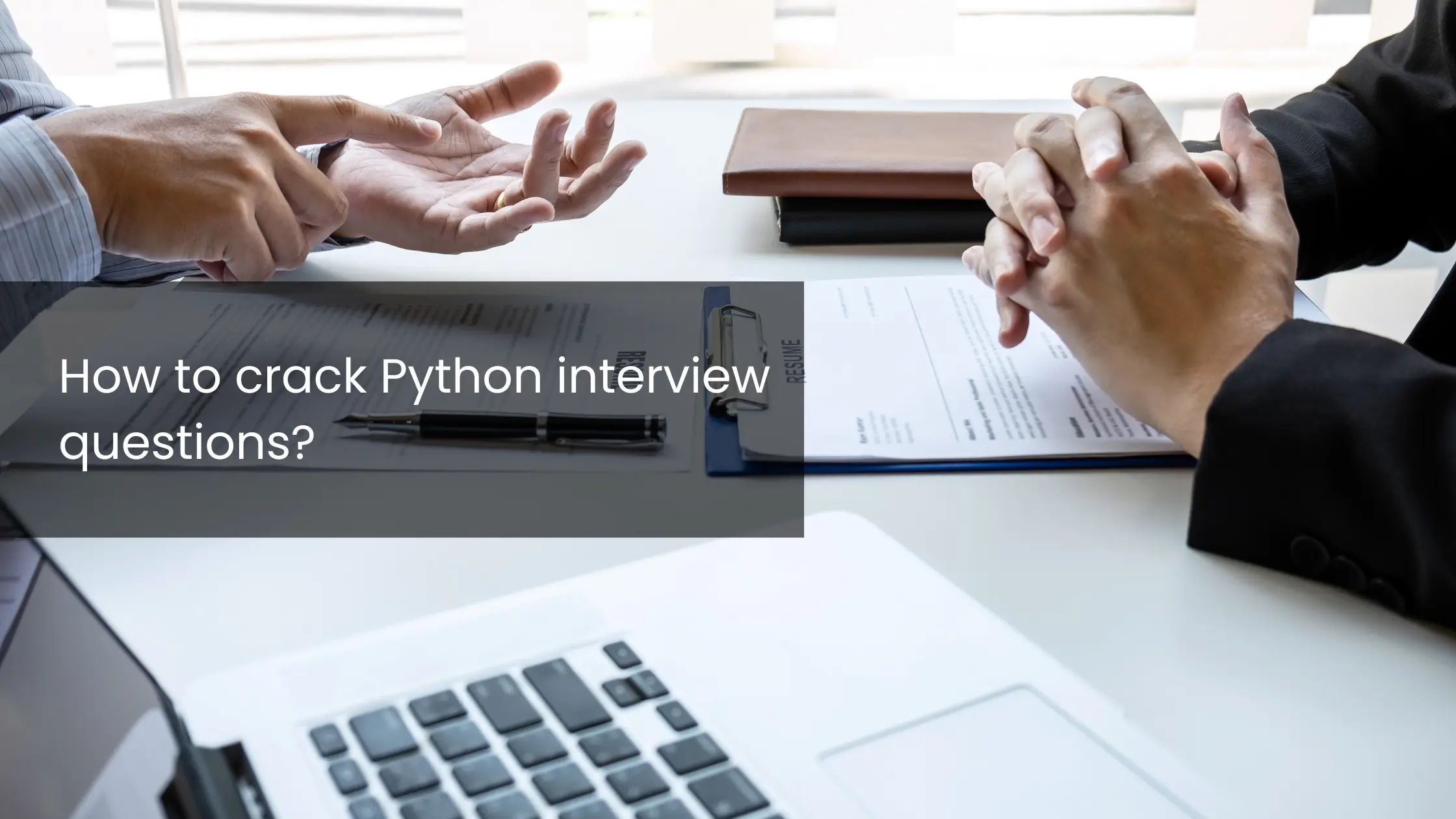 Hey there, Pythonistas! So, you've learned Python and now you're gearing up for that big interview. You’ve probably got butterflies in your stomach, but don’t worry. Cracking Python interview questions can be a breeze if you know what to expect and how to prepare. Let’s dive into some tips and tricks to help you nail that interview and land your dream job!
Hey there, Pythonistas! So, you've learned Python and now you're gearing up for that big interview. You’ve probably got butterflies in your stomach, but don’t worry. Cracking Python interview questions can be a breeze if you know what to expect and how to prepare. Let’s dive into some tips and tricks to help you nail that interview and land your dream job!
Understand the Basics
First things first, make sure your fundamentals are rock solid. Interviewers love to start with the basics to gauge your understanding of core concepts. Be prepared to answer questions about:
- Data types and structures: Lists, tuples, dictionaries, and sets.
- Control flow: If-else statements, loops (for, while).
- Functions: How to define and call them, scope, and lambda functions.
Our Python Programming course covers all these basics thoroughly, ensuring you have a strong foundation.
Master the Advanced Topics
Once you’re comfortable with the basics, it’s time to dive into more advanced topics. Interviewers often ask about:
- Object-Oriented Programming (OOP): Classes, inheritance, polymorphism, encapsulation.
- Exception Handling: Try-except blocks, custom exceptions.
- Modules and Packages: How to import and use them.
For a deep dive into these advanced topics, our Advanced Software Testing course is a great resource.
Practice Coding Challenges
The best way to get good at answering Python interview questions is through practice. Websites like LeetCode, HackerRank, and CodeSignal offer numerous coding challenges that you can practice. Focus on common problems such as:
- String manipulation
- Array and list problems
- Sorting and searching algorithms
- Dynamic programming
Regular practice will help you think algorithmically and improve your problem-solving speed.
Understand Common Libraries
Python’s power lies in its rich ecosystem of libraries. Be familiar with the most commonly used ones:
- NumPy and Pandas for data manipulation.
- Matplotlib and Seaborn for data visualization.
- Requests for making HTTP requests.
- Django or Flask for web development.
Our Machine Learning and Data Science with Python course will introduce you to many of these libraries, especially those used in data science.
Mock Interviews
One of the best ways to prepare is to simulate the interview environment. Find a friend or use platforms like Pramp to conduct mock interviews. This will help you get used to thinking on your feet and answering questions under pressure.
Behavioral Questions
Don’t forget that interviews are not just about technical questions. Be ready to answer behavioral questions too:
- Tell me about yourself.
- What’s a challenging problem you’ve solved?
- How do you handle tight deadlines?
These questions help interviewers understand your soft skills and how you fit into the team.
Frequently Asked Questions
What are common Python interview questions for beginners?
Basic questions usually cover lists, dictionaries, control flow, functions, and core OOP concepts like classes and inheritance.
How can I prepare for coding rounds in Python interviews?
Practice coding challenges on LeetCode or HackerRank. Focus on strings, arrays, loops, sorting, and recursion problems.
Which Python libraries should I know for interviews?
You should be familiar with Pandas, NumPy, Matplotlib, Requests, and optionally Flask or Django if applying for full-stack roles.
Are behavioral questions part of Python interviews?
Yes. Expect to be asked about past projects, how you handle challenges, team dynamics, deadlines, and communication.
What course can help me prepare for Python interviews?
Our Python Programming course is tailored for interview prep, covering both theoretical and practical knowledge with coding tasks.
Conclusion
So there you have it! With a solid grasp of Python fundamentals, advanced topics, regular practice, and familiarity with common libraries, you’ll be well on your way to acing those Python interview questions. And hey, if you need more structured learning, check out the excellent courses we offer at Cinute Digital. Happy coding, and may your Python journey be smooth and successful!